Strengthening and sustainable development of quinoa cultivation in the province of Anta
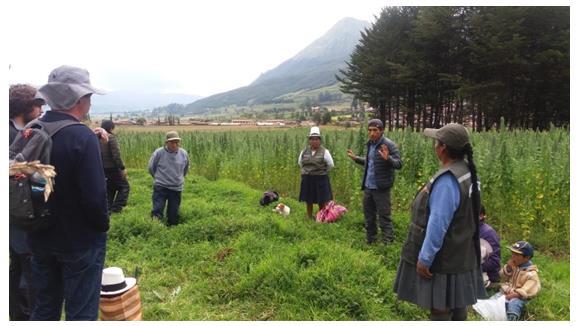
Summary
This solution aimed at sustainable development of quinoa cultivation in the province of Anta, Cusco (Peru) based on seed selection, organic production and efficient water management to reduce the probability of erosion and soil degradation.
Quinoa is an ancient crop that is characteristic of Andean agrodiversity. Changes in rainfall patterns, water scarcity, increased occurrence of pests and weeds, and the abandonment of traditional practices have resulted in lower production, reduced income, low sustainability of the crop, and impacting the food and livelihoods of the already impoverished Andean population. Quinoa is a species that is highly adaptable to climate change due to its tolerance to long periods of drought and its high nutritional value. The overall CCA strategy carried out by the Asociación Peruana para la Promoción del Desarrollo Sostenible (APRODES) is the sustainable development of quinoa cultivation based on seed selection, the implementation of agroecological practices focused on organic production and efficient water management to reduce the probability of erosion and soil degradation and, therefore, further reduce the vulnerability of producers to drought events and increase their response capacity. The technical support and strengthening of farmers´ organization through the formation of associations and a cooperative are the cornerstones of the strategy to improve the economic income of 250 families in the province of Anta, Cusco, ensuring the efficient use of natural resources, with a sustained production that increases food security and the adaptive capacity of producers.
Overview
- Location:
- Implementation sites:
- Single country
- Single location
- Mountain region:
- High Andes
- Province:
- Anta province
- Site locations:
Anta, Ancahuasi and Huarocondo Districts
- Solution scale:
- Ecosystem type(s):
- Solution type(s):
- Climate impact(s) addressed:
- Impact time-scales:
- Co-benefits:
- Implementation timeline:
- 2014 - 2019
- Sendai targets:
Solution details
Main beneficiaries & outcomes
Main beneficiaries include 250 families of farmers
Planning and implementation
The actions were planned within the framework of the APRODES Productive Chains Program and implemented under two projects: Strengthening and development of quinoa cultivation in the province of Anta, Cusco region, Peru (2014-2016) and Program for economic inclusion and sustainable development through quinoa cultivation in Cusco, Peru (2016-2019). APRODES coordinated actions with local governments, the Agroecological Network of Cusco, leaders of family production units, cooperative centers and demanding companies.
Finance
During the 2014-2016 stage, APRODES received the collaboration of the Fondo Italo Peruano and the Istituto per la Cooperazione Universitaria. During the 2016-2019 stage, the implementation was in collaboration with the Mainel Foundation who was also the funding applicant. The actions are part of the “Program for economic inclusion and sustainable development through the cultivation of quinoa in Cusco, Peru” funded by Obra Social La Caixa.
Grant: 440,000 Euros (2016-2019)
Innovation
The intrinsic logic of the model implemented by APRODES is to improve the competitiveness of farmers and the quality of their products, in order to get better market opportunities. This is achieved through quinoa, a crop with strong cultural roots in the Andes, highly resistant to climate change (drought tolerant) and of great nutritional value, which is important in the fight against child malnutrition. The training, field visits and technical assistance provided were considered by local stakeholders (farmers and input suppliers) as a process of technological innovation. The objective is the sustainable development of quinoa cultivation through proper water management, the implementation of agroecological practices leading to organic certification of the crop and participation in a fair market.
Performance evaluation
Internal evaluation. Use of a field notebook by the farmers: record of management and costs at each stage of the crop, record of training and agreements reached.
Long term project sustainability and maintenance
The farmers acquired knowledge in sustainable quinoa management through training and technical assistance. One of the main activities was the training of “agricultural promoters” within the community who constitute the technical support once APRODES leaves.
Strengthening the personal and social development of people contributes to their integration, development and commitment to work.
The existence of natural capital recognized by the producers contributes to sustainability. The producers have a production culture and the areas are positioned in the national market with the promoted products.
During the project and due to the formalization of the associations, greater trust was generated among producers and between the purchasing companies and the associations and cooperatives. Once APRODES’ intervention was completed, the organizations formed are not only spaces to interact with external companies, but have also become spaces that allow producers to interact with governmental (such as municipalities, FONCODES, etc.) and non-governmental (NGOs) development entities, and with some financial entities that offer them lines of credit.
Capacities for design and implementation
Knowledge
Through the intervention of APRODES, quinoa was identified as a product with potential for commercialization (through market studies), which reduced the risk in decision-making to act with greater certainty. Technical assistance and training aimed to improve the productivity and quality of quinoa, develop sustainability and build people’s capacities by providing technological innovation, for example, through the selection of a variety that is better adapted to climate change, more resistant to the quinoa moth and better yielding, and training in agroecological practices such as composting manure and crop stubble, and organic pesticide insecticides.
Knowledge was exchanged with successful associations already active in the region.
Technology
APRODES provided personalized assistance to producers, strengthening their technical skills in crop management, production costs, integrated pest and disease control, compost preparation and organic production, which was highly valued by producers and considered a technological innovation that allows the sustainable development of quinoa.
Political / Legal
The NGO APRODES plays the main role in the design and implementation of the solution. Municipalities and local governments provide support and advice. As a consequence of the solution, the organization of producers into associations attracts other public and private development entities, which see the initiatives as an opportunity to promote collective work for the benefit of small producers.
Institutional
The role of the NGO APRODES is fundamental in the formation, continuity and consolidation of producer organizations. The production and marketing managers are responsible for convening, motivating, bringing together, training and legalizing the organizations, and helping them to take advantage of commercial opportunities.
Socio-cultural
APRODES carried out the project by providing technical training to farmers in the sustainable development of the crop to increase production and position themselves in the market.
The associations and the cooperative formed, provided support to production by providing access to infrastructure (harvest and post-harvest machinery), facilitating access to credit, and responding collectively to market demands.
Outlook & Scalability
Barriers and adverse effects
For many years, quinoa has been conventionally managed. The training and implementation of agroecological practices aims to reverse this impact and achieve organic production certification once agrochemicals are no longer detected in production due to their complete degradation.
Transformation and future outlook
The acquisition of knowledge on efficient water use and the selection of pest-resistant and higher-yielding varieties, together with organic production, will make it possible to reduce losses due to pests and manage scarce water under future climate change.
Strengthening the sustainable development of a crop with deep cultural roots, high adaptability to climate change due to its tolerance to drought and high demand in the world market is expected to increase producers’ response capacity by raising their income.
The strengthening of associative work is also expected to contribute to positioning in a fair and equitable market that confers greater responsiveness.
Potential for upscaling and replication
More districts in the province of Anta are expected to participate in the cooperative.
Finally
Contacts of key institutional partners involved with the solution planning and implementation
Ph.D. Carlos Reynel – Asociación Peruana para la Promoción del Desarrollo Sostenible – APRODES ([email protected])
Key references/links
APRODES (2015). Producción de Quinua en Anta Cusco (https://www.youtube.com/watch?v=CH10I9OR4kM&ab_channel=APRODES)
APRODES (2019). Cosecha de experiencias. APRODES al servicio del agricultor peruano (2002-2019). Lima, Perú: Asociación Peruana para la Promoción del Desarrollo Sostenible.
APRODES (2019). Memoria 2019. Contribuyendo al desarrollo Sostenible. Lima, Perú: Asociación Peruana para la Promoción del Desarrollo Sostenible.
Fundación Mainel (2016). Inclusión económica y desarrollo sostenible a través del cultivo de quinua (2016/2019)(https://mainel.org/proyectos/desarrollo-economico-quinua-peru/)
Fundación Mainel (2016). Nuevo proyecto de desarrollo sostenible e inclusión económica a través del cultivo de quinua en Cusco (https://mainel.org/noticias/proyecto-quinua-peru/)
Fundación Mainel (2018). Logrando desarrollo sostenible con la producción de quinua ecológica (https://mainel.org/noticias/logrando-desarrollo-sostenible-con-la-produccion-de-quinua-ecologica/)
Fundación Mainel (2019). Quinua: sembrando futuro en Perú – Obra Social “La Caixa” (https://www.youtube.com/watch?v=kyBWW6XcHtA&ab_channel=Fundaci%C3%B3nMainel)
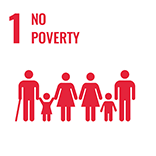
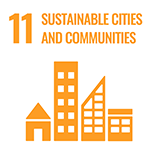
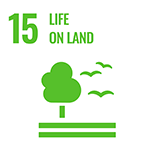
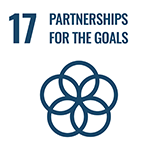
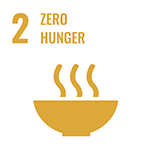
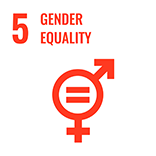
(0) Comments
There is no content